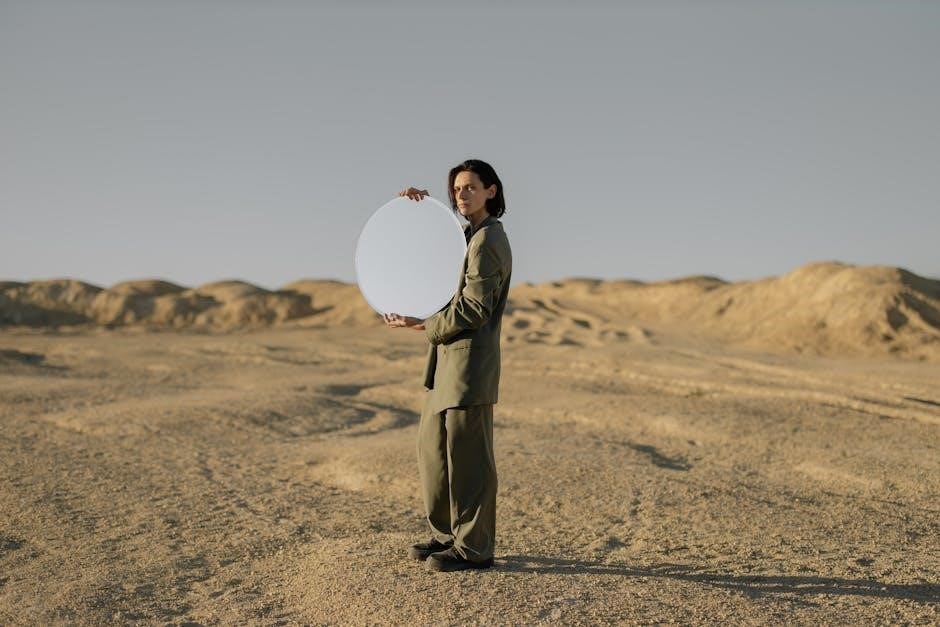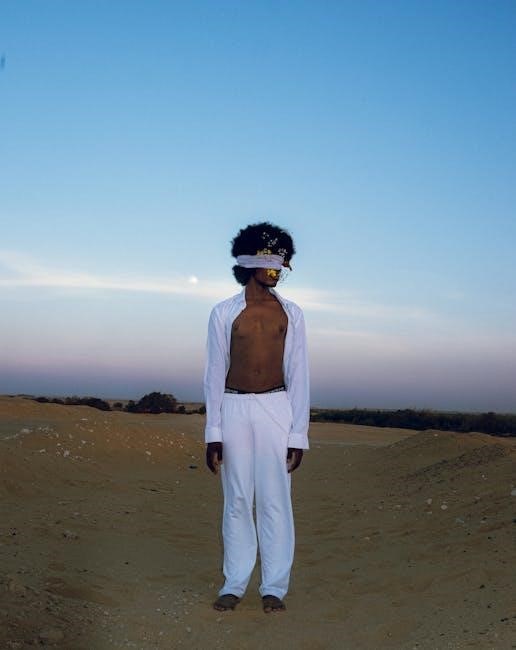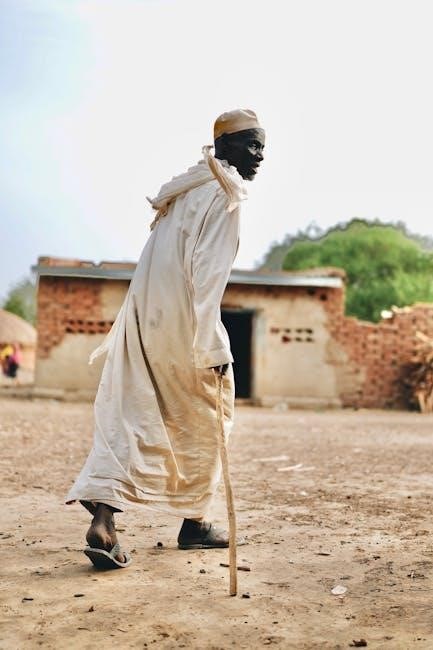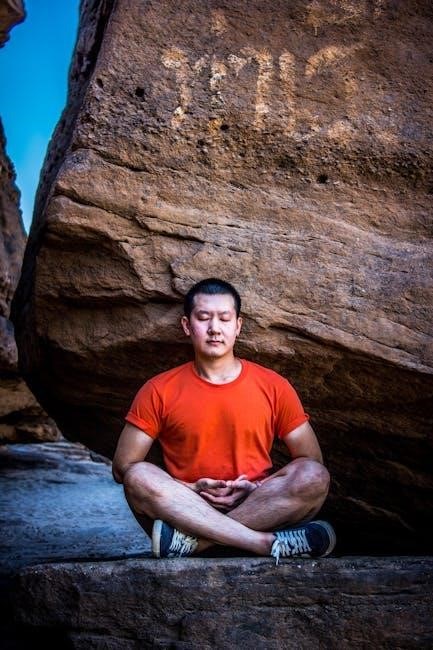The Life Journey of Eddie Jaku: The Happiest Man on Earth
Eddie Jaku, a Holocaust survivor, embodies resilience and hope. His memoir, The Happiest Man on Earth, shares his journey from darkness to light, spreading messages of gratitude, tolerance, and kindness.
Early Life and Background
Eddie Jaku was born in Germany to a Jewish family, growing up in a world where his identity as a Jew often clashed with his pride in being German. His early life was marked by a loving family and a strong sense of belonging, which would later be shattered by the rise of Nazism. Despite the challenges he faced, Eddie’s upbringing instilled in him a resilience and optimism that would define his character. His family’s values of kindness, hard work, and love laid the foundation for his future philosophy of gratitude and hope; Eddie’s early years were a mix of joy and subtle warnings of the darkness to come, shaping the man he would become.
Surviving the Holocaust
Eddie Jaku’s life took a devastating turn with the rise of the Nazis. As a young Jewish man, he was subjected to unimaginable horrors, including confinement in concentration camps such as Auschwitz and Buchenwald. Despite the brutality and suffering, Eddie found strength in small acts of kindness and his determination to survive. He witnessed the worst of humanity but also experienced moments of compassion that fueled his resolve to live. The Holocaust tested every aspect of his being, but Eddie emerged with a profound understanding of resilience and the importance of never letting hatred consume him. His survival was a testament to his indomitable spirit, and it laid the groundwork for his later philosophy of gratitude and hope.
Post-War Life and Philosophy

After the Holocaust, Eddie Jaku rebuilt his life with remarkable resilience. He migrated to Australia, where he found solace in a new beginning; Eddie embraced life with gratitude, believing that every day was a gift. He married his wife, Flore, and raised a family, cherishing the love and joy they brought into his life. Professionally, he thrived as an engineer, contributing to his community and living a fulfilling life. Eddie’s philosophy centered on the power of choice and the importance of kindness. He often shared that true happiness comes from within and that one can choose to be happy despite life’s challenges. His post-war life was a testament to his belief that even after darkness, light and beauty can prevail. Eddie’s story inspires others to embrace hope, forgiveness, and the beauty of life, no matter the circumstances.

Becoming the Happiest Man on Earth
Eddie Jaku’s transformation into “the happiest man on earth” was rooted in his unwavering belief in the power of choice. Despite enduring unimaginable suffering during the Holocaust, he chose to embrace life with gratitude and optimism. Eddie often shared that happiness is not about circumstances but about mindset. He emphasized that every day is a gift and that one can choose to find beauty in life, no matter the challenges. His philosophy was simple: kindness, tolerance, and love are the keys to true happiness. Eddie’s journey to becoming the happiest man on earth was not about forgetting the past but about rising above it. He inspire[d] others to adopt his mindset, proving that even in darkness, light can prevail. His story is a powerful reminder that happiness is a choice, and it is up to each individual to make life beautiful.

The Book: Key Themes and Lessons
The Happiest Man on Earth explores themes of gratitude, tolerance, and kindness, emphasizing the power of choice and mindset. It teaches readers to find beauty in life despite adversity, inspiring resilience and hope.
Gratitude and Positivity

Eddie Jaku’s philosophy revolves around gratitude and positivity, which he believes are choices that define a fulfilling life. Despite the horrors of the Holocaust, he emphasizes the importance of focusing on the good, even in the darkest times. Jaku shares how he consciously chose to embrace gratitude, transforming his suffering into a source of strength. He encourages readers to appreciate life’s small joys and recognize that happiness is not circumstantial but a mindset. By practicing gratitude daily, he believes anyone can find beauty in life, no matter the challenges. His story is a powerful reminder that positivity is a choice, one that fosters resilience and hope.
Tolerance and Kindness
Eddie Jaku’s story underscores the transformative power of tolerance and kindness. Despite enduring unimaginable suffering during the Holocaust, he chose to reject hatred and instead embrace compassion. Jaku often reflects on how kindness, even in the darkest moments, can foster hope and unity. He shares stories of small acts of kindness that sustained him during his imprisonment, highlighting their profound impact. In his memoir, Jaku advocates for treating everyone with dignity and respect, regardless of their background. He believes that tolerance is not just a virtue but a necessity for building a harmonious world. By choosing kindness, Jaku inspires readers to overcome prejudice and division, emphasizing that love and understanding are the cornerstones of a meaningful life. His message of tolerance serves as a beacon of hope, reminding us that even in adversity, compassion can prevail.

The Power of Choice
Eddie Jaku’s life is a profound testament to the power of choice. Despite the unimaginable horrors he endured during the Holocaust, he made a conscious decision to embrace happiness, positivity, and hope. Jaku often reflects on how he chose to focus on the good in people and situations, even in the face of extreme adversity. He believed that hatred and bitterness would only perpetuate suffering, and instead, he opted to cultivate love, forgiveness, and resilience. This mindset not only helped him survive but also allowed him to thrive in the years following the war. Jaku’s philosophy emphasizes that true freedom lies in the choices we make, regardless of our circumstances. By choosing to see the beauty in life and to spread joy, he inspires others to take control of their own destinies and embrace a life of purpose and fulfillment.
Love and Friendship

Eddie Jaku’s story underscores the transformative power of love and friendship in overcoming even the darkest challenges. After the Holocaust, Eddie found solace in rebuilding his life through meaningful relationships. His marriage to Flore, a fellow survivor, became a cornerstone of his happiness. Together, they built a life rooted in mutual support, trust, and unconditional love. Jaku often emphasized that the bonds of friendship and family were crucial in helping him heal and find purpose. He believed that nurturing these relationships was essential to living a fulfilling life. By prioritizing love and connection, Eddie created a legacy of warmth and joy, inspiring others to cherish the people in their lives. His journey highlights how love and friendship can serve as a beacon of hope and resilience, even in the face of profound adversity.

Legacy and Impact
Eddie Jaku’s remarkable life and philosophy have left an indelible mark on the world. His memoir, The Happiest Man on Earth, has become a New York Times bestseller, inspiring countless readers with its message of hope and resilience. By sharing his experiences, Eddie has educated future generations about the Holocaust, fostering empathy and understanding. His belief in the power of gratitude, tolerance, and kindness has resonated globally, encouraging people to embrace positivity even in difficult times. Eddie’s legacy extends beyond his book; he has become a symbol of hope and resilience, proving that happiness is a choice. His story, adapted into a one-man play, continues to captivate audiences, spreading his message of love, friendship, and the importance of living a meaningful life. Through his words and actions, Eddie Jaku has created a lasting impact, reminding everyone that life’s beauty is within our control.
Eddie Jaku’s extraordinary life serves as a testament to the power of choice and the human spirit’s capacity for resilience. Despite enduring unimaginable suffering, Eddie chose to embrace happiness, spreading a message of hope and positivity. His memoir, The Happiest Man on Earth, has become a beacon of inspiration, urging readers to adopt gratitude, tolerance, and kindness in their daily lives. By sharing his story, Eddie has inspired countless individuals to reevaluate their perspectives and strive for a fulfilling life. The adaptation of his story into a one-man play further amplifies his message, reaching audiences worldwide. Eddie’s legacy is a reminder that happiness is not circumstance-dependent but a conscious choice. His philosophy continues to resonate, encouraging people to embrace love, friendship, and the beauty of life. Eddie Jaku’s journey teaches us that spreading happiness is not only possible but essential for creating a better world.



